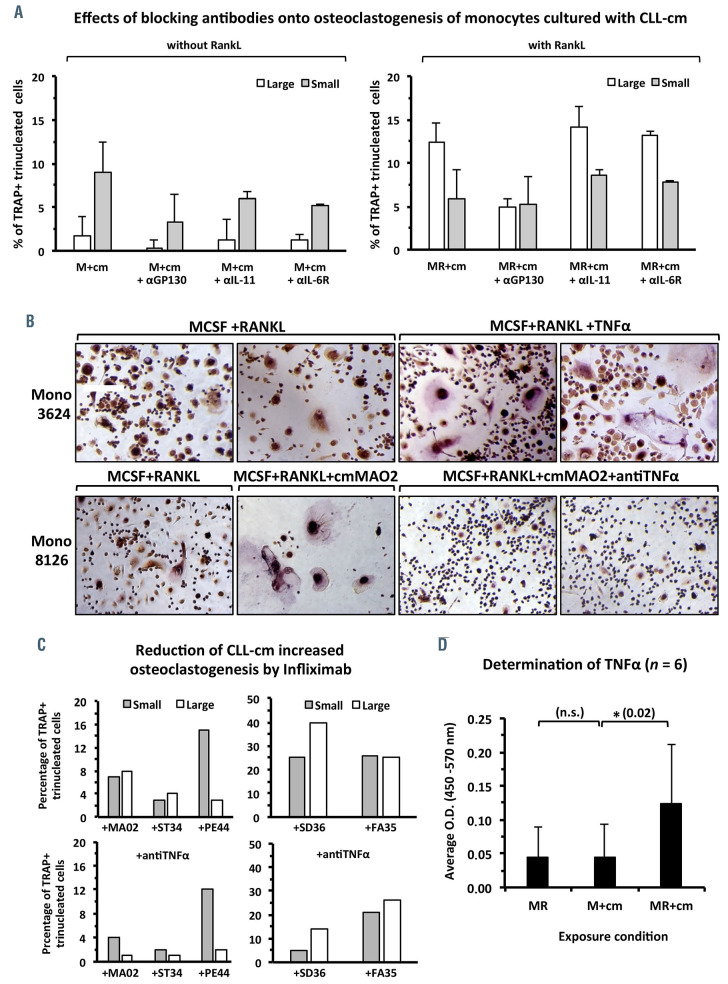Figure 6.
Anti-IL-11 or anti-IL-6R monoclonal antibodesAbs reduce the differentiation of osteoclast precursors. Infliximab (anti-TNFα) inhibits the generation of mature authentic osteoclasts derived in the presence of RANKL. In parallel, higher levels of TNFα were detected in culture media (cm) of monocytes pre-stimulated with RANKL and then with CLL-cm. (A) Neutralization of IL-11 and of IL-6 inhibits the differentiation of TRAP+ tri-nucleated cells derived in the presence of MCSF+CLLcm (M+cm), putatively representing osteoclast precursors, but not of those reaching terminal differentiation, derived in the presence MCSF+RANKL+CLL-cm (MR+cm). Anti-GP130 monoclonal antibodies affected both the number of putative precursors and mature osteoclasts. Large and small indicate the size of the cells as defined in Figure 4. Values were derived from three different experiments and three CLL cases. (B) TNFα, added to cultures of MCSF+RANKL-pre-activated healthy monocytes, stimulated the number of differentiated osteoclasts which also appeared larger than those in control experiments. The addition of CLL-cm from one CLL patient (MAO2) enhanced osteoclast formation, while the neutralizing anti-TNFα monoclonal antibody markedly reduced the enhanced osteoclastogenesis observed. Size bar: 25 μm. (C) Histograms depict the number of large and small osteoclasts derived in the presence of CLL-cm, with or without neutralizing anti-TNFα monoclonal antibody, from five different CLL cases, as assayed in different experiments. The addition of infliximab markedly reduced the number of large, fully differentiated osteoclasts. (D) The amount of TNFα was increased in cultures of monocytes pre-activated with MCSF+RANKL (MR) and then with CLL-cm (MR+cm).

